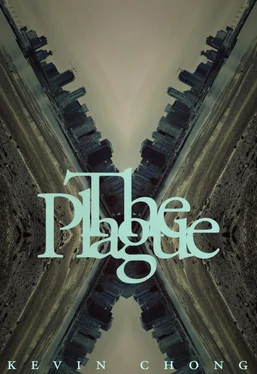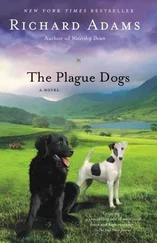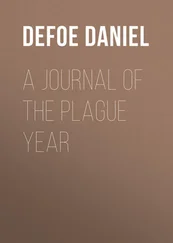“Do you want to start your tape recorder?” Rieux asked.
The coffee had an unctuous flavour. Siddhu placed his iPhone on the counter to record the conversation. Rieux had begun talking before he could take out his notebook and had already veered off-topic to Siddhu’s recently published retrospective on the first anniversary of the Annex. “The headline described the development as ‘inevitable,’ like the area was being remade in the image of the rest of the city,” said the doctor.
“I was there. I spoke to activists and the big shots when the discussions and protests were underway,” Siddhu said. “I don’t know about ‘inevitable,’ but the article was written from today’s perspective.” He wanted to say that, in retrospect, the outcome seemed “predictable.”
“People don’t want to talk about it,” Rieux said. “Nowadays they can drive through without locking their doors. But there’s a reason why the previous mayor lost the election. What was here before—the people, the problems—may have been swallowed up, but they haven’t gone away.”
“I won an award for my Annex coverage,” Siddhu said. He instantly regretted sounding so defensive. “And the editor wrote the headline.”
“It’s a matter of language. Inevitability suggests futility. Why try if we’re going to lose? ”
This was a person who argued to pass the time, Siddhu noted. “My story concerns the new outreach counsellor,” he finally said.
Rieux’s knowledge of policies toward displaced patients was general. “We want everyone to receive care,” he insisted. “A patient is a patient.” Siddhu would still need to interview the actual counsellor. The doctor had apparently agreed to talk with him only to set him straight on the headline’s word choice. Jesus . And yet he didn’t have the airs of a crank or know-it-all. He was too aloof. Rieux’s emotional reserve was borne of his role as a doctor. Siddhu could never work in medicine; as a metro-beat reporter, earlier in his career, he’d covered fires and car accidents, beelining to be the first to interview firefighters and police officers, bracing himself before he approached the families who’d lost homes or loved ones. Now, he buckled at the sight of a child in pain.
It was clearing outside when they parted. Siddhu was preoccupied by a blade of light against a skyscraper in the distance when he felt something at his feet. He’d kicked a dead rat. Blood was coming out of its eyes.
He kept his gaze trained on the sidewalk until he was back in the newspaper building. Before he stepped into his office, he washed his hands in the washrooms by the elevator. A tall, broad-shouldered man, the kind of man who wore glasses to mute his dazzling handsomeness, stepped out of a stall.
Previously famous as a real-estate marketer and a social entrepreneur, Romeo Parsons possessed a baseline demeanour of ironic detachment from the niceties of social life. Whenever he glad-handed in front of reporters, he made sure to signal that he was playing a role. To offset that cynical aftertaste, he staged moments of unguarded pleasure. Last week, he broke off from his daily 5K to join a group of teenagers playing basketball. A video of him making a jump shot was widely shared and re-posted. As a result of his public gestures, people felt pre-acquainted with him.
“We’ve met, right?” Parsons asked as he took the sink next to Siddhu.
“I’ve been part of your press scrums,” Siddhu told him.
“Of course,” he said. He jogged his finger toward him. “Hey, did you write the piece about the anniversary of the Annex”—a vein on his neck bulged when he used that word—“last week? I made my staff read the entire story. I’m reminded of something Joseph Stalin said, something about how one death is a tragedy —”
“A million is a statistic.”
Parsons beamed. “ You get it. People act as though the epidemic vanished, but it’s the advocates like you who make us see the consequences of inaction. We need more stories like yours.”
The new mayor slapped him across his shoulder before he left Siddhu alone at the hot-air dryer. Siddhu returned to the newsroom where everyone had repositioned themselves at their work terminals, back to their unionized jobs with purpose. They stared at their screens with curtailed grins and scrabbled away at their keyboards. It was as if Parsons was Santa Claus and could see them being nice.
Siddhu had always considered inspirational books written by motivational speakers and pored over by his two success-driven brothers—each of whom had an extra column line in their investment accounts—to be the energy drinks of professional life. To feel inspired, as he did now, left him twitchy, jumpy. He was perched for the sugar crash. It was inevitable.
We now introduce our final witness, Megan Tso, on her flight from Hong Kong to Vancouver. She was pleased to be placed next to an empty seat. Since she’d been travelling so much, a thirteen-hour stretch without brushing elbows with a co-passenger, a place to put her laptop and e-reader, and a spare tray where she could leave her hot towel and glass of ice water—all of this gave her enough space to appreciate humanity.
She updated the talk she’d just given in Guangzhou. While there, she spoke about death as the impetus for ritual and then of its place in many civilizations, with references to social media. She took a selfie at her family’s ancestral home, which received her eight-hundredth “like” before the plane ascended. Her social media popularity was a dubious achievement, and at least five of those likes were from dummy accounts created by Markus.
Then she took a two-hour train back to Hong Kong, gave the same talk based on her book, The Meaning of Death, and had dinner with aunts and uncles and cousins, relatives on her mother’s side, eager to see her, and oversolicitous. Now she was on this flight for her final two engagements in Vancouver, which were spaced nearly a week apart.
Once she got home to Los Angeles from Canada, she would have been away for a month: L.A.-Chicago-Madrid-Seoul-Guangzhou-Hong Kong-Vancouver. She’d cycled through her outfits five times and had spent nearly a four-figure sum—an entire speaking fee—on hotel laundry and dry cleaning. She’d run out of toothpaste and lost her favourite notebook. Now she thought of getting home as the next stage in a triathlon—a chance to exhaust yet another set of muscles.
Before leaving, she’d quit her job of six years as an editor at an academic press. Tso had loved her job and hated freelancing and was barely afloat despite her book’s unexpected success, but she’d needed to quit. She needed the bandwidth.
After she returned to Los Angeles, she planned to move her belongings out of the storage locker. Her first temporary address, a dog-sitting stint, was in peril because the rescued greyhound’s owner, a documentary filmmaker, was no longer certain that funding was secure for his three-month stint in Appalachia.
Don’t think about stuff.
To soothe herself, in her head she tallied the air miles she’d accumulated and imagined them like stars in the sky. She fell asleep tracing them behind her eyelids. Airplane sleep was a fraction as restful as it was in one’s own bed, but when practiced well, it was a form of teleportation. One could nod off when the plane was lit like a cave, then wake with all the lights on and the flight attendants scurrying to their seats for touchdown. This time, Tso roused herself awake after forty-five minutes and watched parts of three movies. Her suitcase was the first of many black cloth bags to emerge on the conveyor belt; she grabbed it and dashed to the taxi stand. If traffic wasn’t terrible, if check-in didn’t take too long, she’d have enough time to take a shower and lie on a bed for another forty-five minutes before she was picked up and taken to the lecture venue.
Читать дальше












